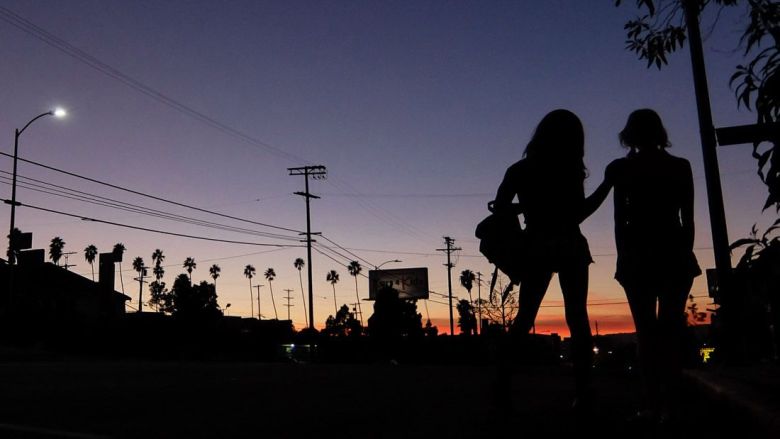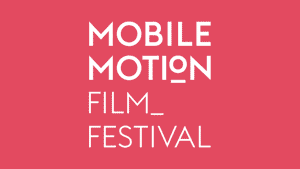Mark Duplass: The Cavalry Is Not Coming
I started watching Mark Duplass talk at SXSW in 2015, on YouTube. Not exactly new but still pretty relevant. And, well I thought I might as well note down the important parts for you (otherwise it’s an hour long, if you feel up for it).
I’m in the middle of a lot of things, right now. I have 3 feature scripts out being looked at by various industry people and producers on board one of them.
There’s producing Episode 3 of my sci-fi anthology show, Silent Eye, writing these posts and, of course, awaiting submissions to start arriving for MoMo on the 1st of October.
My to-do list is really important in such head-spinning times (I use Google tasks attached to my Google calendar). I’ve been checking them off, one by one. And that’s a healthy psychological trick, too. Feels good each time you check one off, knowing you have made a little progress.
But back to the talk. Mark starts off by saying he will speak about “the bad news and the good news of independent film”. So here we go, this is Mark…
The Cavalry Are Most Definitely Not Coming
For me, there’s one thing that keeps coming up, over and over in my career. This very simple phrase. And I’m going to take a note from Tony Robbins, motivational speaker, here.
These simple words: the cavalry isn’t coming. I say this because, we’ve all heard these amazing tales of how that 21 year old kid had a script and his cousin worked in the mail-room at Warner Brothers, and he gave it to him, and his script got up to the head of Warner Brothers, and they bought it for a million dollars, and got it made…
And that’s an exciting story but a super dangerous one. Because I don’t know anyone that’s happened to. Maybe that’s happened once, but I had a very different career trajectory.
I was here in Austin. In college, living in shitty apartments all around town. And I was sitting there thinking, ‘I’m excited, I’m inspired, I want to be a filmmaker… I have no connections… how the f… Everyone keeps saying just pick up a camera and do it, but even if I do it, how am I going to get there?
And I think that’s where most people are. What can you do when you are absolutely nowhere and absolutely full of magic and ideas?
So – we’re going to go through some step by step, Tony Robins processes here guys.
Step 1 – the $3 Short Film
We’re in a place now where technology is so cheap, there’s no excuse for you not to be making short films on the weekends, with your friends. Shot on your iPhone.
We had a feature film at Sundance last year called Tangerine. That was shot entirely on an iPhone. Did really well, sold to Magnolia (he doesn’t mention his company funded Tangerine). So, no excuses not to be doing that.

A lot of people think like, “even if I make a decent movie on this phone, who’s going to watch it?”
And I’ll just share one personal story with you. My brother and I lived in Austin for a long time. We worked as editors. And we saved up enough money, by doing this corporate documentary, to make our first feature film. The film was called… (I can’t understand what he says here. Sounds like “Vincetail Rio”). Starred me, as a runner from the South Texas border, trying to get a spot at the Olympic trials…
You can see why this didn’t work out so well, already. We spent $65,000 on this movie. And it was a steaming pile of dog diarrhoea.
We almost gave up making movies.
We were sitting on Jay’s couch in South Austin. And I remember looking at him, and he was depressed and I was just slightly less depressed. Enough to say, “We should get up, we should make a movie like we did when we were kids.”
But all we had was our parents video camera, which we knew had a dead pixel in the middle of it. I said, “I’m going to get a tape. You come up with a movie idea, and we’re shooting as soon as I come back.”
So I was back in 20 minutes and Jay said, “Something weird happened to me yesterday. I was trying to get the outgoing message of my answer machine going. And I couldn’t get it right and I kinda had a nervous breakdown.” And I was like, “That’s great! This feels like us! Funny but kinda tragic.”
“Put the camera on, I’m going out the door and just film me,” I said.
“We don’t have lighting kit. The microphone is the one on the camera,” said Jay.
“I don’t care,” I said. “We’re doing this.”
So we shot one improvised 20 minute take. We edited it down to about 7 minutes. And we watched it with our friends. We were like, “There’s something interesting here. It’s a shame there’s a dead pixel in it and it looks and sounds like shit but…”
Our friend David Zelner was like, “I think you should just submit this around to some festivals, just to see.”
And that $3 movie was our first movie that got into Sundance. It played at SXSW here, 12 years ago. And it changed everything for us. We realised that, it really doesn’t matter what your movie looks like if you have a voice. If you have something interesting to say.
Make 1 short film every weekend
I recommend making one of these every weekend, with your smartest group of friends, who want to be filmmakers. You want a group of about 4 or 5 people. They don’t have to be film savvy. Someone who is ideally charismatic to be your lead actor.
It should be one scene, 5 minutes. Ideally it’s comedic. Because those program well at film festivals. Short films also program well. That’s short shorts, that’s really key.
Your first ones are going to suck. Mine did. Maybe you’ll make a great one. There’s some people that do that. I hate those people.
But there will be like a little nugget when you show your friends. They’ll be like, “This is 4 minutes and 58 seconds of garbage. But that little giggle you guys had right there was interesting.”
So then you expand on that. You cut everything else out. You start honing in on it.
And somewhere you’re going to discover that you have something unique to offer.
It usually lies in those weird conversations you’re having with your friends, your loved ones, your siblings, between midnight and 3 in the morning, when everybody’s loopy, drunk or stoned.
At the risk of saying you should make a self-indulgent film for your first movie… you should absolutely make a self-indulgent film for your first movie.
That’s your special stuff. When you tap into that, you’re going to find you have something unique to offer (but it might be 2 years of making films before you find it). And this is going to be the start of your career.
You need a day job
This is a hard career, so don’t eat out, don’t buy clothes. Save a bit of money, because now you’re going to have to travel to film festivals. You’re going to submit this to every film festival you can. And you’re going to start meeting other filmmakers that you like.
You’re going to start building your community. The programmers there are going to like you and they’re going to wonder, “Oooh, I want to program a feature from this kid.”
The whole time you’re going round this festival, there is a small chance that an agent is going to sign you. And say, “I love your movie! I want to pitch you to direct a movie. The cavalry is coming!”
The cavalry is probably not coming.
What’s probably going to happen is, you’re going to be writing a feature script this whole time, based upon the look and the feel of your $5 movie, that can be made for less than $1000. And this is going to be the next step in your career.
Step 2 – spend a year making this movie
You’re going to go into temp work. These next 2 years are going to be brutal, ok? There’s a reason why artists wait tables. It’s flexible, you can get your shifts covered.
You’re going to write this script based on what I call the Available Material School of Filmmaking.
Which is not: “It takes place in a spaceship…” Because you can’t do that on $1000. But what you can do is take a meeting with everyone who wants to support you and say, “What do you have that you can lend to me to make a film?”
When Jay and I made The Puffy Chair we were very clear. We had my apartment in Brooklyn, and my wife Katie’s apartment in Brooklyn. My street was really quiet and I knew we could shoot on that. I had a van because I was playing in bands. So I was like, “road movie – that’s good for a van”.
There was a furniture store in Main that was going out of business, and we had like 2 identical chairs we could get for $300. I was like, “Great! I’ll burn one of them and that will be our big stunt in the movie.”
And we reverse engineered a movie that would fit inside these things. So that we knew we wouldn’t have to wait to make it.
You gather up your friends who you made the short with, a crew of 5-8 people.
He then suggests buying lights with a 30 day return policy. Which means you have 30 days to shoot your film before you give them back (free lights). Also, buy cameras at a place where you can return them. Or you can shoot on your iPhone, if you like that look.
If you have an agent at this point, they might say, “Don’t do this. I can get you money to do this.” If you allow them to do that, you will end up in development for 5 years. And you will not get your movie made. Because you are just a short filmmaker with nothing behind you.
Go make this movie on your own
The cavalry is not coming.
So, with this movie you make there’s a chance it’s going to go to Sundance and it’s going to sell for $1m. It might happen.
Probably not.
Probably what’s happened is that you made something really interesting but it’s a little bit flawed. Because you’re a new filmmaker, and it’s your first feature. But it’s unique and it has a voice.
You’re still doing temp work and you’re running around to every single festival that you developed relationships with. They want you back, they’re excited to program you. And this is where the capital of film festivals starts to come in.
You’re definitely going to get an agent at this point, because you made a feature that works. But there are movie stars at these festivals. Every film festival has like 3-5 movies stars that come and get the sponsors in to do it. (uhm…)
So Mark’s next step is, for me, something of a leap. Assuming you have an agent by now, he tells you to tell your agent to do one thing for you.
“I want you to send my $1000 movie to every single actor that’s at this agency. And I want you to set screenings at every other week. So that I can get actors to fall in love with my work and then build another movie with them.” And this is where you’re going to start to climb.
My thoughts on the talk so far…
I’m not sure he’s talking about something he did, with the agent, here. If so, this might be easier in the USA, where there is a much stronger filmmaking culture, than in Europe. But I wouldn’t know. I’ve never had an agent (in Europe) and I’ve never tried it.
I think it was Tarantino who said, the problem with Europe is we don’t have a long list of movie stars, with names which can help finance a movie. But certainly, with the size of the US, its common language and a thriving filmmaking scene, this sounds like reasonable advice.
In other parts of the world, I’m not so sure. In Europe, everything is a bit more spread out and disjointed, due to a variety of languages and cultures. An actor might be a star in Bulgaria, but will probably be unknown internationally. For example, I showed my feature at a festival which is well know in Germany, but almost unheard of anywhere else.
Anyway, there’s some great advice for getting started. And I’m only 13 minutes into this talk. If I find more interesting stuff, I will share it in a 2nd post.
What can we take from this?
First: inspiration – if Mark and Jay can do it, starting with $3, you can. And it’s great to hear these insights from within the industry, as it helps you understand how it works (instead of trying to guess, or going by the dream the industry projects).
However, don’t follow Mark’s (or anyone’s) advice slavishly. What worked for Mark is very much down to who Mark is and the time he was striving to be a filmmaker. It’s difficult to imagine, 5 years from now, a successful filmmaker standing on a podium and, when asked how he got to where he is, says, “I just did what Mark Duplass said.”
There’s a huge amount of luck that goes into any journey. But you have to make your own luck. You make your luck by doing (and not waiting). Which is something Mark points out when he advises to avoid the temptation of industry people promising you things.
That’s something you really can’t stress enough – never wait. You must always be doing. From doing you learn your own way forward. And you create your own momentum.
You need to find a way that suits you, who you are, what you’re interested in, and – importantly – the times you are living in.
I like what he says about building a community. And this comes from doing. But also from leading – you are the one who will have to tell people “this is happening, are you in?” And then you have to make it happen and hope they show up. The ones who keep showing up are the people you can depend on – but still you will always have to lead the way.
Eager to learn more?
Join our weekly newsletter featuring inspiring stories, no-budget filmmaking tips and comprehensive equipment reviews to help you turn your film projects into reality!
Simon Horrocks
Simon Horrocks is a screenwriter & filmmaker. His debut feature THIRD CONTACT was shot on a consumer camcorder and premiered at the BFI IMAX in 2013. His shot-on-smartphones sci-fi series SILENT EYE featured on Amazon Prime. He now runs a popular Patreon page which offers online courses for beginners, customised tips and more: www.patreon.com/SilentEye



